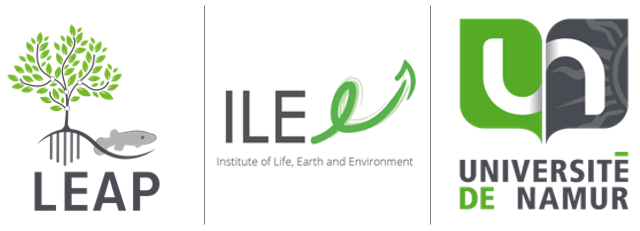The upcoming Intersociety Meeting in Comparative and Evolutionary Physiology, will be organized by the American Physiological Society with several sponsoring societies (see below) in San Diego, CA, October 5-8, 2014. The website for the meeting is available at: www.the-aps.org/comparative.
A call for abstracts will be made shortly, and abstracts will be due July 9, 2014.
Please see below the list of topic categories to which abstracts may be submitted. There will be three poster sessions (one on each day), and up to 12 sessions of oral presentations based on abstracts (up to 96 oral presentations). You may propose oral or poster presentations.
There are numerous awards available for trainees and under-represented minorities, including the Scholander Award, Best Poster Competition, and Travel Awards. Please visit the “Award Information” page to obtain relevant information.
Symposium: Overcoming a Major Physiological Barrier: Adaptation from Saline to Freshwater Habitats
Invasions of freshwater habitats by marine and brackish organisms have been successfully performed by only a few animal taxa over evolutionary time, and constitute one of the major transitions in the history of life. In addition, recent and rapid colonizations of freshwater areas have resulted from human activities, such as transportation. Invading low salinity environments confronts the animals with serious challenges for maintaining hydromineral balance, mainly in retaining and acquiring ions against adverse gradients, and excreting excess water. Freshwater environments can also be affected by contaminations, either natural or anthropogenic. As natural selection acts on all developmental stages, each must adapt to new conditions before invasion of a novel environment, such as freshwater, can become successful. This symposium addresses various physiological adaptations that have enabled colonizations of fresh water from marine environments over different time scales. Speakers will describe physiological adaptations at multiple hierarchical levels of biological organization, from molecules to organisms and populations, and will discuss several model species or taxa, mainly crustaceans and fish, at different stages of development, from embryos to adults. The talks will explore adaptive responses to challenges imposed by freshwater environments, including the presence of contaminants.
Topic Categories for 2014 APS Intersociety Meeting in Comparative Physiology
Biomechanics, locomotion, and functional morphology
Cardiovascular and respiratory physiology
Conservation physiology
Developmental physiology
Endocrinology and reproduction
Biomechanics, locomotion, and functional morphology
Cardiovascular and respiratory physiology
Conservation physiology
Developmental physiology
Endocrinology and reproduction
Evolutionary physiology
Field physiology
Metabolism and energetics
Modeling and mathematical physiology
Nutrition, digestion, and gastrointestinal physiology
“-omics” in comparative physiology
Osmotic, ionic, and acid-base physiology
Sensory physiology and neurobiology
Thermal biology
Other comparative physiology
Field physiology
Metabolism and energetics
Modeling and mathematical physiology
Nutrition, digestion, and gastrointestinal physiology
“-omics” in comparative physiology
Osmotic, ionic, and acid-base physiology
Sensory physiology and neurobiology
Thermal biology
Other comparative physiology
Potential sponsors
Societies:
SEB
SICB
CSZ
ANZCPB
The Crustacean Society
SEB
SICB
CSZ
ANZCPB
The Crustacean Society
The Physiological Society
International Society for Neurochemistry
International Congress of Vertebrate Morphology
Western Society of Naturalists
Journals and Publishers
Journals and Publishers
AJP-RIC, AJP-Cell, AJP-PG, Advances in Physiology Education, JEB, JCP, PBZ, CBP, Cambridge Univ Press, Elsevier (Academic) Press, Oxford Press, Princeton Univ Press, Springer Verlag Dec 14

